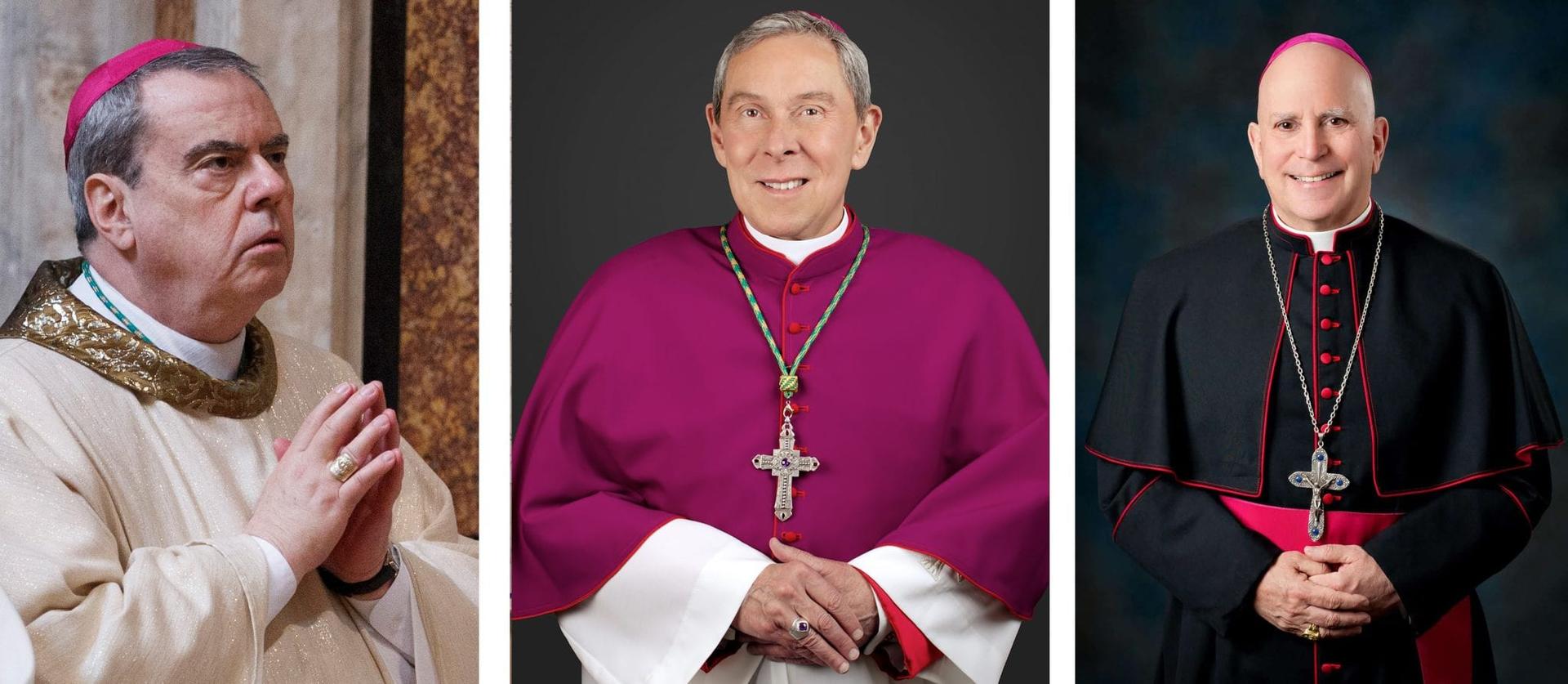WASHINGTON, D.C. — A final report on the findings of an independent review of clergy abuse cases in Colorado’s three Catholic dioceses from 1950 to 2019 shows that 166 children were abused by 43 priests statewide.
Released Oct. 23, the report found that at least 127 children were victimized by 22 priests in the Denver Archdiocese; at least 36 children were victimized by 19 priests in the Pueblo Diocese; and at least three children were victimized by two priests in the Colorado Springs Diocese.
Nearly 90% of known incidents of abuse happened more than 40 years ago, and over 85% of those victims were abused in the 1960s and 1970s.
The last substantiated incident of abuse across the three dioceses was in 1998, when a now-incarcerated and laicized Denver priest sexually abused a teenage boy, Archbishop Samuel J. Aquila of Denver said in a letter responding to release of the 250-page report.
“We must face the past and learn from it, and we must know if our children are safe today. Thanks to our ongoing vigilance, they are,” Aquila said in a four-page letter to the faithful of his archdiocese about the report.
“Now we must learn from the suffering of the victims and never assume that we could not face another perpetrator in our midst,” he said. “Just in the last few years, it has become even more apparent that perpetrators infect every organization, the Boy Scouts, the public schools, the Olympics, news organizations, colleges — these abusers can manifest in every part of our lives if we are not alert and responsive. We, more than any organization in this country, know we must be vigilant.”
In February at a news conference with Colorado Attorney General Phil Weiser, Aquila, on behalf of the Colorado bishops, said the three dioceses would voluntarily open their records to an independent review led by former U.S. Attorney Robert Troyer.
In the months that followed, Troyer “interviewed survivors, priests, experts, victim advocates, safe environment staff and others as part of his investigation and fact-finding efforts,” Aquila said in his letter.
“(Troyer) met with experts in the field of child abuse prevention. In addition, the attorney general’s office set up a phone line and encouraged survivors to come forward,” he added. “We should all be comforted that this investigation spanned seven decades, has been thorough and is transparent.”
Weiser said the findings show “a dark and painful history.”
“The culture going back decades was one where there was a reluctance to acknowledge wrongdoing,” he said in a statement the day the report was released. “The challenge we have today is to learn from that painful history and prevent it so this can likely never happen again.”
In Colorado Springs, Bishop Michael J. Sheridan thanked Weiser as well as Troyer and his investigative team “for their thorough, honest and forthright investigation of all of Colorado’s Catholic priest files. As difficult as this report is to read, it is an important step for the healing of abuse survivors.”
“It is also an important reminder that we must never become complacent in defending our children and must always seek to protect the most innocent among us,” he added in a statement. “Jesus admonishes us that it is better for a millstone to be placed around one’s neck and be cast into the sea, than to lead a young one astray (Luke 17:2).”
Even “one victim of the horrific crime of child sexual abuse is too many,” he said, adding that the report identified the most recent one in that diocese as having occurred in 1986. “The Diocese of Colorado Springs must own the consequences of having three. One predator priest is too many; the Diocese of Colorado Springs must recognize and repent of two.”
With Aquila and Pueblo Bishop Stephen J. Berg, “I commit on behalf of this diocese to fully embrace and implement each and every recommendation” Troyer made, including that the investigation of reported abuse be done by independent trained investigators and that this process needs to be more victim-centered.
In his statement about the report, Berg noted that protocols of the U.S. bishops’ “Charter for the Protection of Children and Young People,” “virtually in place now over 20 years, have been followed, and our directives to achieve a safe environment for children have been successful.”
“However, I once again reiterate my apology and express my sorrow to all victims of childhood sexual abuse,” the bishop said. “I again remind everyone that when it comes to any instance of this crime, the Diocese of Pueblo has a zero-tolerance policy.”
“If we are to truly reform the Church we must begin again and always with our unique and primary mission as Catholics to proclaim Jesus Christ, the living word of God, as the way, the truth, and the life,” Berg said. “Let us be thankful for all who have worked over years to protect and heal the little ones among us.”
“In purposeful outreach to those innocent victims who have been grievously harmed, let us pray for our church leadership to firmly take the next steps to end all facets of this tragedy.”
In other remarks about the report, the Denver Archdiocese encouraged all the faithful to attend one of the safe environment training classes that are required for priests, deacons, employees and volunteers who work with children.
“We would also encourage you to find ways to support your current priests, who far too often are judged as guilty by association,” it said. “Finally, we should all continue to pray for the healing of everyone impacted by sexual abuse.”
Crux is dedicated to smart, wired and independent reporting on the Vatican and worldwide Catholic Church. That kind of reporting doesn’t come cheap, and we need your support. You can help Crux by giving a small amount monthly, or with a onetime gift. Please remember, Crux is a for-profit organization, so contributions are not tax-deductible.


















